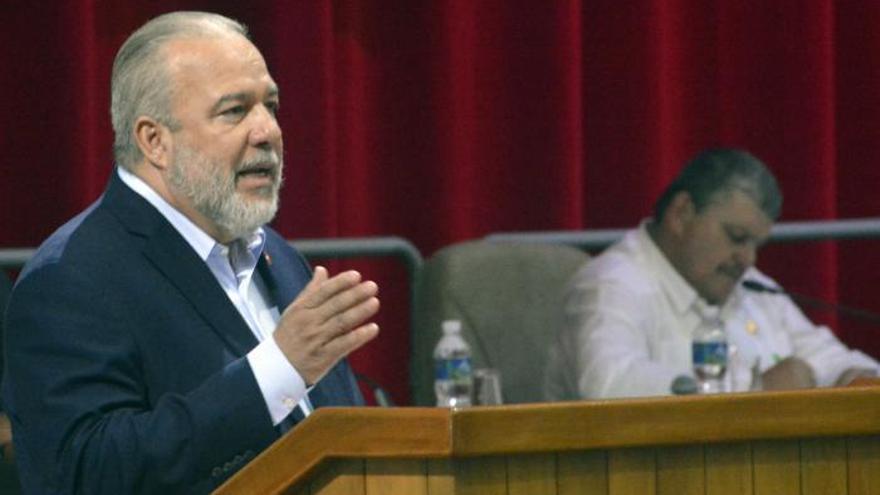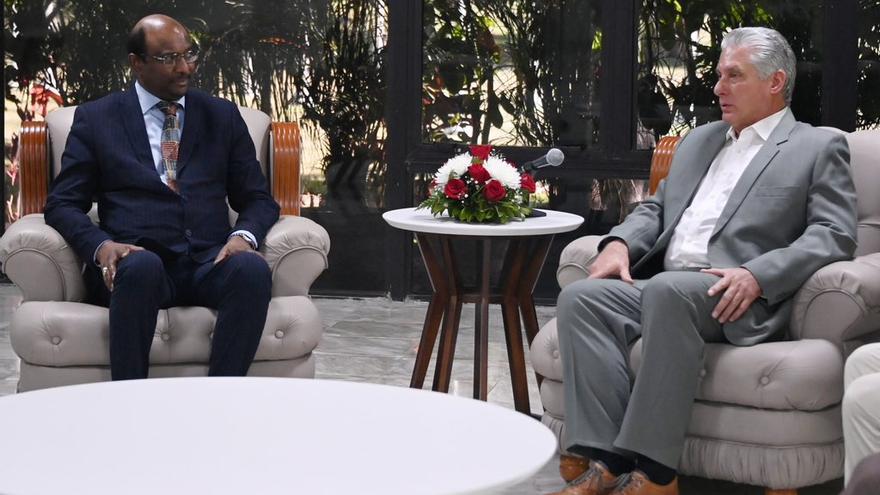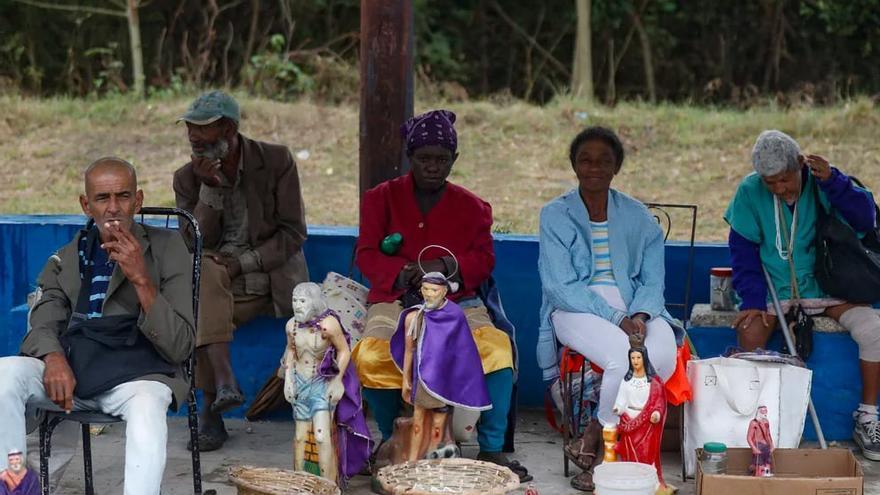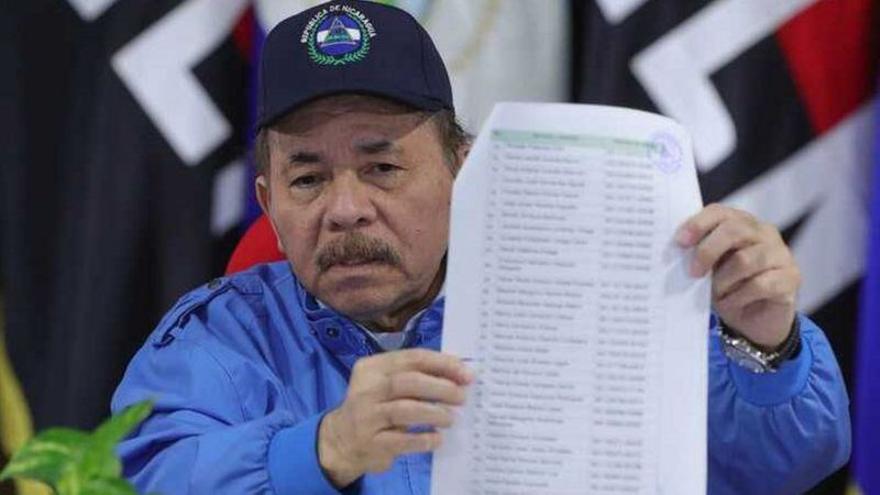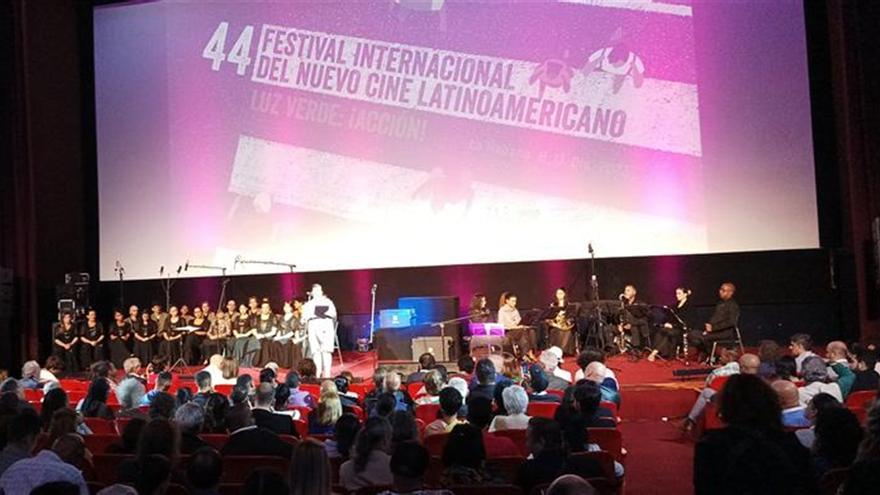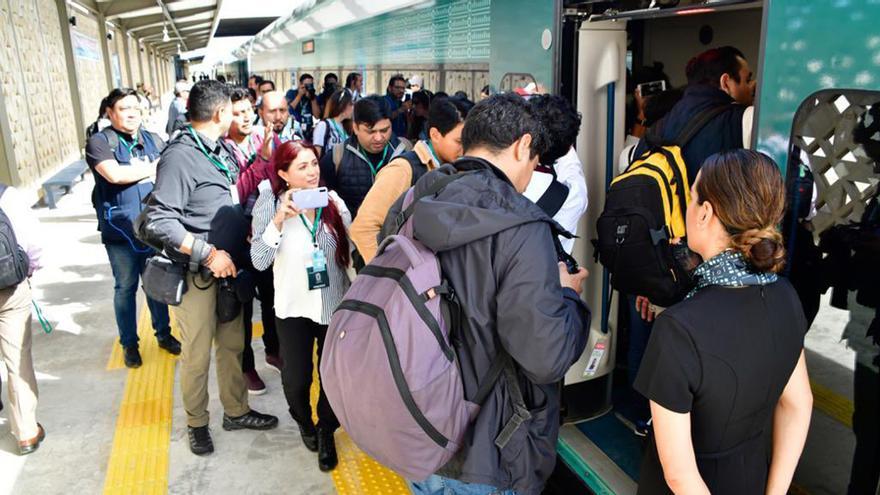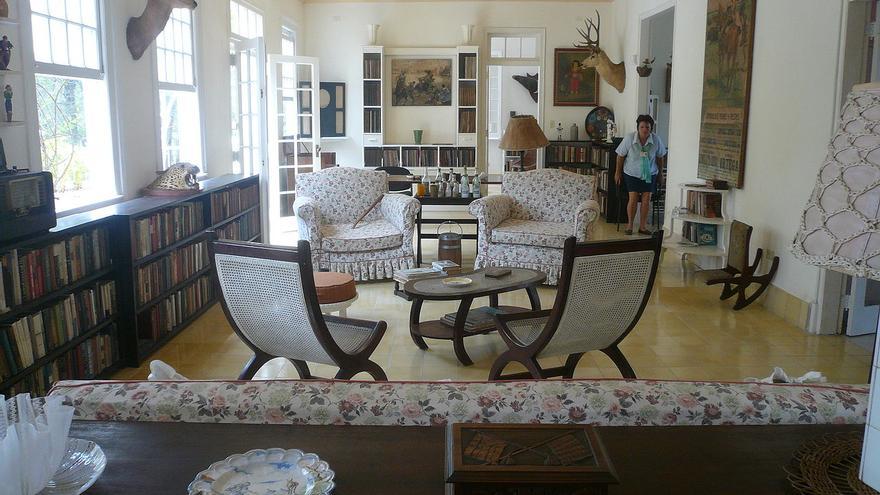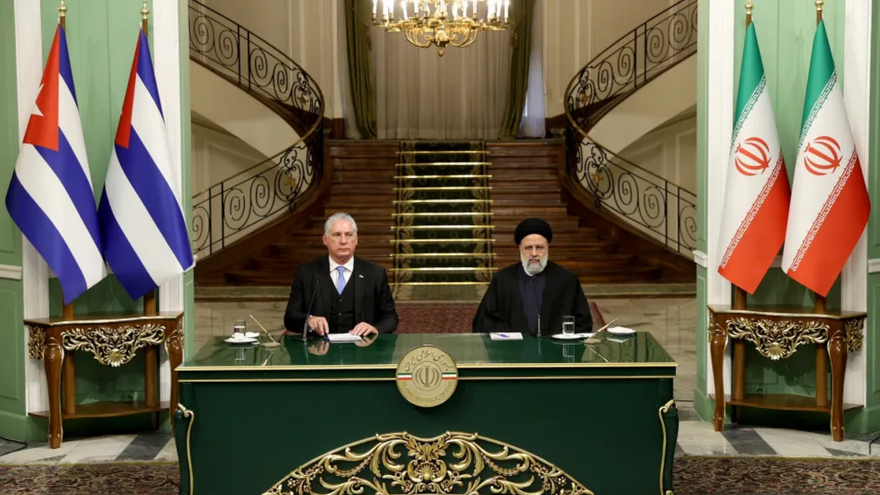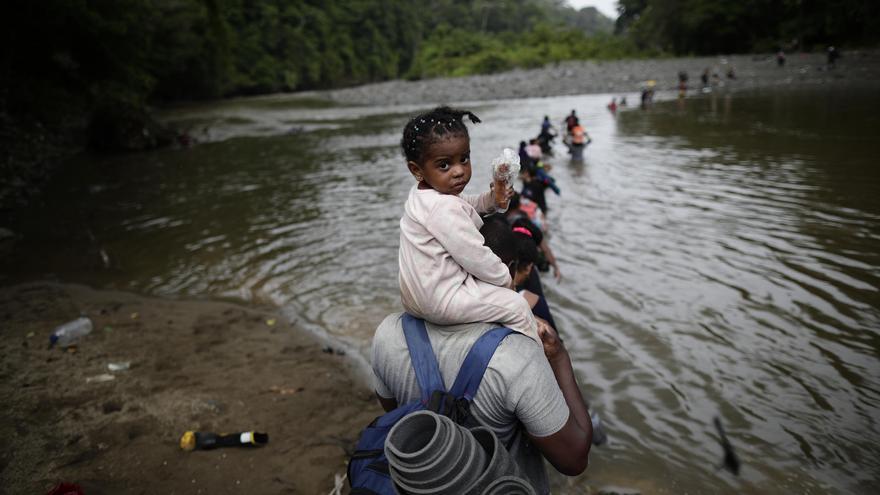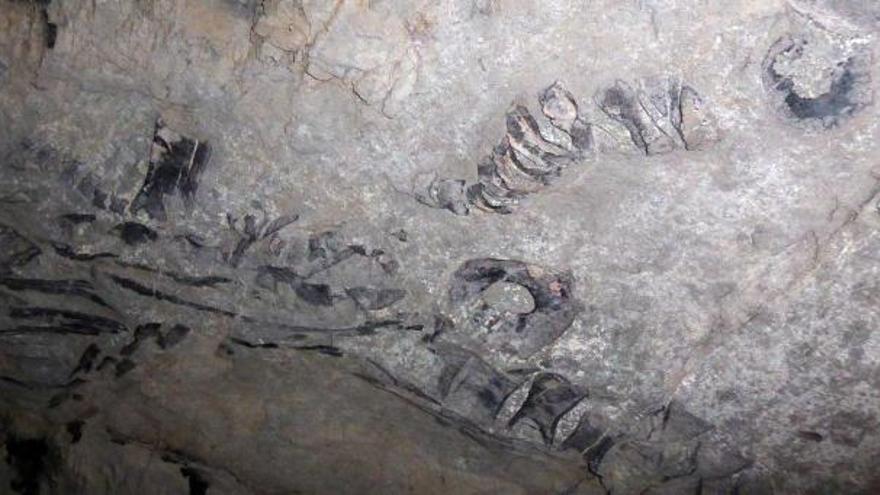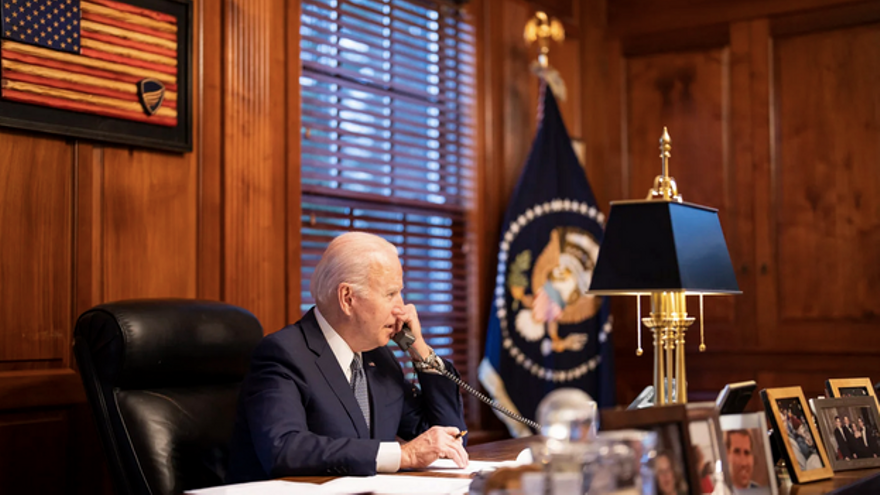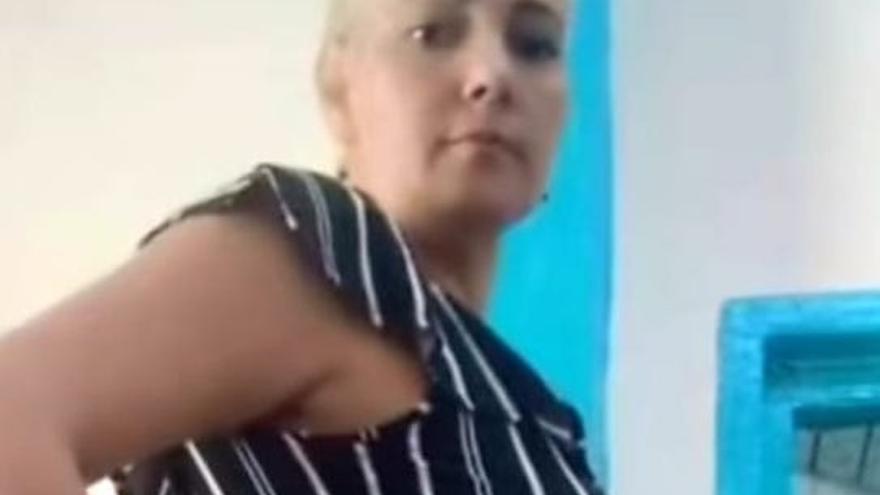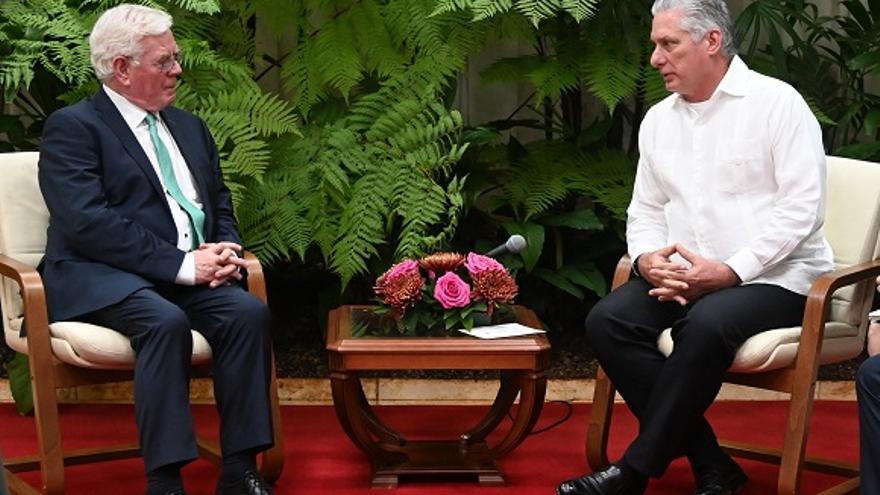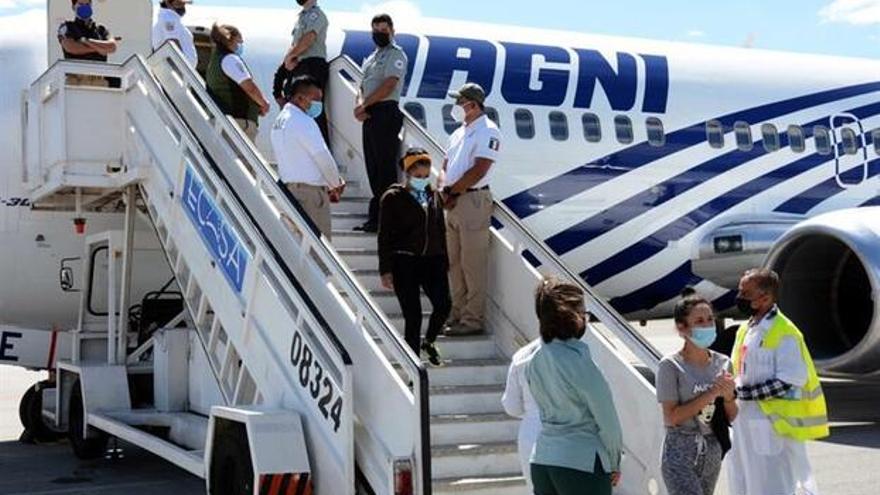
![]() EFE/14ymedio, Havana, 23 December 2023 –The U.S. Coast Guard Service (USCG) returned 45 Cuban rafters this Friday along with 5,210 irregular migrants deported to the Island from several countries in the region so far this year, according to official media.
EFE/14ymedio, Havana, 23 December 2023 –The U.S. Coast Guard Service (USCG) returned 45 Cuban rafters this Friday along with 5,210 irregular migrants deported to the Island from several countries in the region so far this year, according to official media.
This group includes 39 men and six women who left illegally from the province of Matanzas, according to the Ministry of the Interior on the social network X (formerly Twitter). The report indicates that the rafters were intercepted at sea by the U.S. Coast Guard and that this is the 129th repatriation operation of migrants from different nations in 2023.
The Cuban authorities assure that they stand “firm” in their commitment to a “regular, safe and orderly” migration, while warning of the danger and life-threatening conditions posed by illegal departures from the country by sea. Cuba and the U.S. have a bilateral agreement that all migrants arriving by sea will be returned to the Island.
Flights were added at the end of 2022, after Cuba and the U.S. agreed to resume deportation flights for “inadmissible” people detained at the border with Mexico. continue reading
During the last fiscal year, which began on October 1, 2022, more than 6,800 Cubans have been intercepted by the USCG on trips to the coast of Florida, according to official data.
During the last fiscal year, which began on October 1, 2022, more than 6,800 Cubans have been intercepted by the USCG on trips to the coast of Florida
This year, Cuba also received migrants deported from the Bahamas, Belize, the Cayman Islands, the Dominican Republic and Mexico.
Cuba is experiencing an unprecedented migratory wave both for the volume of migrants and for its temporary extension due to the serious economic crisis it suffers with a great shortage of basic products (food, medicines and fuel), galloping inflation, frequent power outages and a partial dollarization of the economy.
It is estimated that in 2022, around 4% of the Cuban population left the country, and this year’s figures could be similar according to those accumulated to date
Also, U.S. immigration authorities arrested more than 242,000 migrants and asylum seekers at the southern border in November, according to figures published this Friday by the Customs and Border Control Office (CBP).
The data for the month of November represent a slight increase, less than 1%, compared to October, but they maintain the trend of the high arrival of migrants on the border with Mexico that has been evident in recent months.
In fact, November was the third month with the most arrests of migrants at the border in the last 14 months, according to CBP data.
Most of the people arrested, more than 191,000, tried to cross into U.S. territory irregularly, according to the data.
The interim commissioner of CBP, Troy Miler, said in a statement that his agency faces a “significant challenge” and asked the U.S. Congress to approve more resources to “improve border security and national security.”
“The levels of migration are still historically high,” the statement stressed. In November, CBP recorded more than 64,811 arrests of people of Mexican nationality, followed by Venezuelans with 34,063 arrests and Guatemalans with 26,299.
According to the statistics for the end of November 2023, published by CBP, 20,076 Cubans arrived in the United States through border points
Since the middle of the year, when a migration restriction that had been imposed by the COVID-19 pandemic was lifted, the Democratic Administration has enacted a series of rules to try to limit the arrival of migrants at the border and restrict access to asylum.
According to the statistics for the end of November 2023, published by CBP, 20,076 Cubans arrived in the U.S. through border points, 72% at the Mexican border. This represents a record number of Cuban irregular migrants in a month, 44,079.
The report points out that during last November, 14,502 Cubans entered irregularly through the southern border of the United States. The number of Cubans who have reached American soil during fiscal years 2022 and 2023 is 650,000, to which are added more than 50,000 since Joe Biden assumed the presidency.
In addition, more than 60,000 Cubans have traveled to the U.S. through the humanitarian parole program, while the number of those who arrived through the CBP One appointments, where Haitian, Mexican and Venezuelan applicants lead, is not revealed.
Cuba is experiencing an unprecedented migratory wave both for the volume of migrants and for its temporary extension due to the serious economic crisis it suffers with a great shortage of basic products (food, medicines and fuel), galloping inflation, frequent power outages and a partial dollarization of the economy. It is estimated that in 2022, around 4% of the Cuban population left the country.
Translated by Regina Anavy
____________
COLLABORATE WITH OUR WORK: The 14ymedio team is committed to practicing serious journalism that reflects Cuba’s reality in all its depth. Thank you for joining us on this long journey. We invite you to continue supporting us by becoming a member of 14ymedio now. Together we can continue transforming journalism in Cuba.

